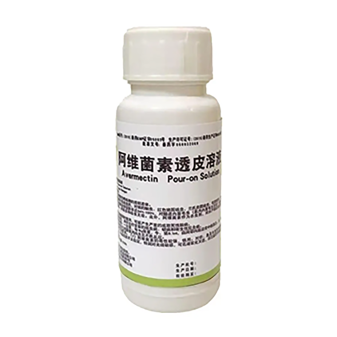- Afrikaans
- Albanian
- Amharic
- Arabic
- Armenian
- Azerbaijani
- Basque
- Belarusian
- Bengali
- Bosnian
- Bulgarian
- Catalan
- Cebuano
- Corsican
- Croatian
- Czech
- Danish
- Dutch
- English
- Esperanto
- Estonian
- Finnish
- French
- Frisian
- Galician
- Georgian
- German
- Greek
- Gujarati
- Haitian Creole
- hausa
- hawaiian
- Hebrew
- Hindi
- Miao
- Hungarian
- Icelandic
- igbo
- Indonesian
- irish
- Italian
- Japanese
- Javanese
- Kannada
- kazakh
- Khmer
- Rwandese
- Korean
- Kurdish
- Kyrgyz
- Lao
- Latin
- Latvian
- Lithuanian
- Luxembourgish
- Macedonian
- Malgashi
- Malay
- Malayalam
- Maltese
- Maori
- Marathi
- Mongolian
- Myanmar
- Nepali
- Norwegian
- Norwegian
- Occitan
- Pashto
- Persian
- Polish
- Portuguese
- Punjabi
- Romanian
- Russian
- Samoan
- Scottish Gaelic
- Serbian
- Sesotho
- Shona
- Sindhi
- Sinhala
- Slovak
- Slovenian
- Somali
- Spanish
- Sundanese
- Swahili
- Swedish
- Tagalog
- Tajik
- Tamil
- Tatar
- Telugu
- Thai
- Turkish
- Turkmen
- Ukrainian
- Urdu
- Uighur
- Uzbek
- Vietnamese
- Welsh
- Bantu
- Yiddish
- Yoruba
- Zulu
Nov . 29, 2024 22:50 Back to list
Exploring the Benefits and Uses of Cefquinome Sulphate in Veterinary Medicine
Cefquinome Sulphate An Overview
Cefquinome sulphate is a highly effective antibiotic belonging to the cephalosporin class of drugs. Its primary application is in veterinary medicine, specifically for the treatment of bacterial infections in livestock and poultry. In recent years, cefquinome has garnered attention not only for its therapeutic benefits but also for its implications in animal health and food safety.
The mechanism of action of cefquinome sulphate involves the inhibition of bacterial cell wall synthesis. Like other beta-lactam antibiotics, it disrupts the formation of peptidoglycan, a crucial component that provides structural integrity to bacterial cells. This disruption leads to the lysis and eventual death of the bacteria, making cefquinome an effective choice for controlling infections caused by various gram-positive and some gram-negative bacteria.
One of the notable advantages of cefquinome sulphate is its broad-spectrum efficacy. It is particularly effective against common pathogens in veterinary settings, such as Escherichia coli and Streptococcus spp. Consequently, it is often used to treat respiratory, gastrointestinal, and skin infections in livestock. As bacterial resistance becomes an increasingly pressing issue in both human and veterinary medicine, cefquinome sulphate provides a valuable tool for managing infections that might otherwise be difficult to treat.
cefquinome sulphate

Despite its effectiveness, the use of cefquinome sulphate, like other antibiotics, raises concerns regarding antibiotic resistance
. The overuse and misuse of antibiotics in agriculture can contribute to the development of resistant strains of bacteria, which can ultimately affect human health. To mitigate this risk, it is crucial that cefquinome sulphate be used judiciously and in accordance with veterinary guidelines. Interventions that include proper dosage, duration of treatment, and adherence to withdrawal times before animals are sent to market can help minimize the impact on resistance development.Regulatory bodies in various countries have established guidelines to ensure the responsible use of antibiotics, including cefquinome sulphate. These guidelines often mandate thorough veterinary oversight, ensuring that antibiotics are only dispensed for necessary medical reasons and not for growth promotion or disease prevention in healthy animals. Furthermore, ongoing surveillance of antibiotic residues in food products helps ensure that milk, meat, and eggs are safe for consumption.
Additionally, cefquinome sulphate has been the subject of various studies aimed at understanding its pharmacokinetics and safety profiles. Research findings have indicated that when administered correctly, cefquinome has a favorable safety margin, with few adverse effects observed in treated animals. The compound is typically well-tolerated, although it is essential to monitor for any potential allergic reactions, particularly in animals with a history of beta-lactam allergies.
In conclusion, cefquinome sulphate plays a pivotal role in veterinary medicine, offering an effective means to combat bacterial infections in livestock. However, the challenges posed by antibiotic resistance necessitate a balanced approach to its use. By adhering to responsible usage guidelines and fostering ongoing research into the effects of antibiotics in agricultural settings, we can harness the benefits of cefquinome sulphate while safeguarding public health and the integrity of our food supply. As our understanding of antibiotic resistance deepens, it becomes increasingly vital to strike a harmonious balance between animal health and the prevention of resistance development—ensuring a sustainable future for veterinary practices.
-
Guide to Oxytetracycline Injection
NewsMar.27,2025
-
Guide to Colistin Sulphate
NewsMar.27,2025
-
Gentamicin Sulfate: Uses, Price, And Key Information
NewsMar.27,2025
-
Enrofloxacin Injection: Uses, Price, And Supplier Information
NewsMar.27,2025
-
Dexamethasone Sodium Phosphate Injection: Uses, Price, And Key Information
NewsMar.27,2025
-
Albendazole Tablet: Uses, Dosage, Cost, And Key Information
NewsMar.27,2025













